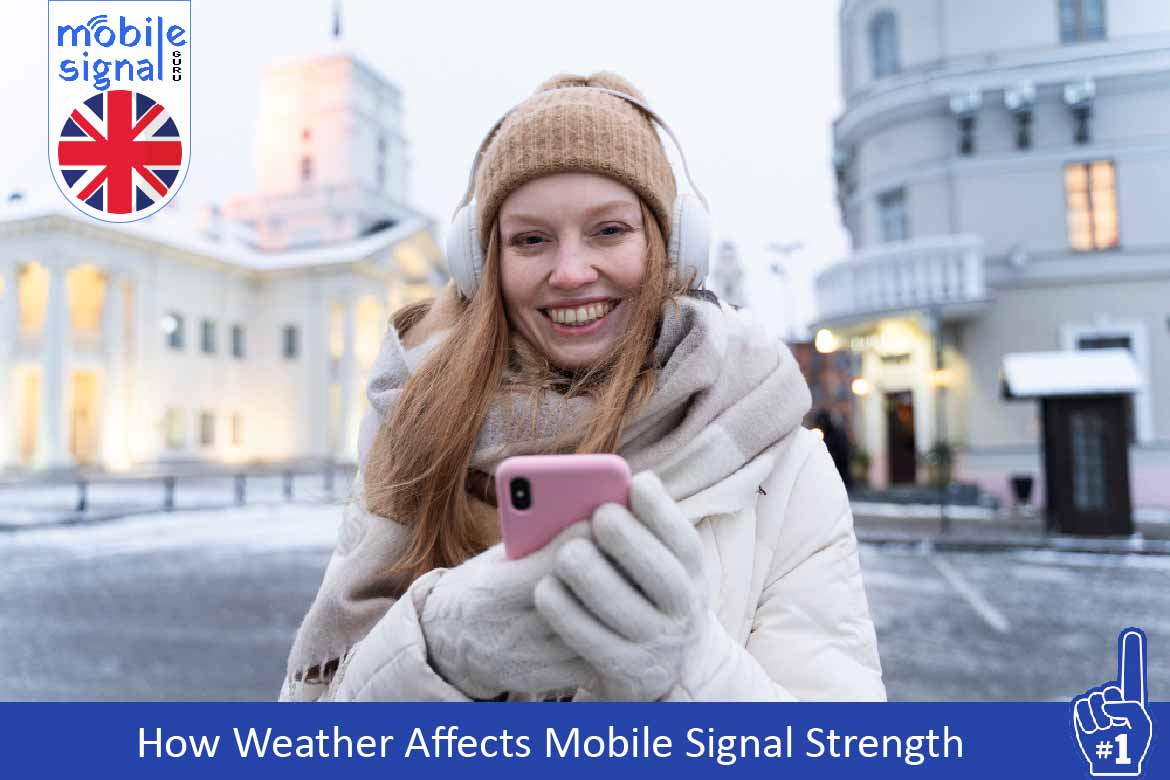Mobile signal strength is crucial for uninterrupted communication, especially in the UK, where the weather is unpredictable. Understanding how weather conditions affect mobile signals can help you improve connectivity during challenging weather conditions. Let’s explore the impact of different weather patterns on mobile signal strength and how to mitigate them.
Rain and Its Impact on Mobile Signals
Rain is common in the UK, and it can significantly affect mobile signal strength. Water droplets scatter radio waves, making it harder for signals to travel between your mobile device and cell towers. As a result, during heavy rainfall, you may notice slower data speeds or dropped calls.
How to Combat Rain-Induced Signal Problems
Using a mobile signal booster can help maintain strong signal strength during rain. Installing your booster in a sheltered location can also prevent any external damage due to water.
Fog and Signal Disruption
Fog, though made of tiny water droplets, can also weaken mobile signals. It acts similarly to rain by scattering radio waves. The denser the fog, the more your signal might degrade, causing issues such as delayed text messages and slower internet.
Fog Solutions
In regions where fog is frequent, choosing a high-quality signal booster with multiple frequency bands can help maintain a stable connection. Keeping your phone in an elevated position can also improve reception.
Snow and Ice: A Winter Challenge
In winter, snow and ice can have an even more significant impact on mobile signals. When snow accumulates on cell towers or ice forms on antennas, it blocks signals from reaching your device. This could lead to increased connectivity problems in colder months.
Battling Snow and Ice Issues
Clearing snow and ice off outdoor antennas can improve signal quality. Additionally, placing your mobile device near windows may enhance reception.
Wind: A Hidden Disruptor
While wind itself doesn’t directly affect mobile signals, it can cause physical damage to cell towers or antennas, leading to signal outages. Strong winds can also move trees, which may block signals, especially in rural areas.
Wind-Related Tips
Installing wind-resistant external antennas or using a mobile signal booster indoors can reduce disruptions caused by wind damage.
Cloudy Weather and Signal Reception
Clouds don’t affect mobile signals as much as rain or fog. However, thick clouds can still marginally weaken signal strength by partially obstructing radio waves.
Improving Signal in Cloudy Conditions
Switching to a higher frequency band, such as 4G or 5G, can help maintain signal strength on cloudy days. Regularly checking your mobile provider’s coverage map ensures you’re in the best coverage area.
Thunderstorms: A Major Interference
Thunderstorms create electromagnetic interference, which can disrupt mobile signals. Lightning and thunder can also cause temporary outages, affecting both calls and data transmission.
Staying Connected During Storms
Using a signal booster with automatic gain control (AGC) can reduce the interference caused by storms. Turning off your mobile device during severe storms is advisable for safety.
Humidity and Its Effects
High humidity in the air can slightly weaken mobile signals, though the effect is less noticeable than rain or snow. Moisture in the air can absorb radio waves, making them less efficient at traveling long distances.
Reducing Humidity Effects
Keeping your phone dry and avoiding areas with extreme moisture levels can help maintain strong signal strength.
Conclusion
Weather plays a significant role in mobile signal strength across the UK. Rain, snow, fog, and even wind can all cause disruptions to your mobile connection. However, by using a high-quality mobile signal booster and taking simple precautions, you can mitigate these effects and stay connected, no matter the weather.
Understanding how weather impacts your mobile signal and taking proactive steps to improve it ensures better connectivity, whether you’re facing the rain in London or snow in the Scottish Highlands.
Final Tips for UK Users
- Consider installing a mobile signal booster if you experience frequent signal drops.
- Stay aware of weather forecasts to anticipate signal issues and plan accordingly.
- Keep your mobile device close to windows or outdoors during severe weather to improve reception.
By following these tips, as a mobile user you can stay connected, rain or shine. Ready to boost your mobile signal at your home office? Explore our top-rated mobile signal booster for your home office now, or contact our support team for personalized recommendations.
 Australia (AUD)
Australia (AUD) Denmark (DKK)
Denmark (DKK) France (EUR)
France (EUR) Germany (EUR)
Germany (EUR) Ireland (EUR)
Ireland (EUR) Malta (EUR)
Malta (EUR) Netherlands (EUR)
Netherlands (EUR) New Zealand (NZD)
New Zealand (NZD) Norway (NOK)
Norway (NOK) Spain (EUR)
Spain (EUR) Sweden (SEK)
Sweden (SEK) UAE (AED)
UAE (AED) Global Site (USD)
Global Site (USD)
